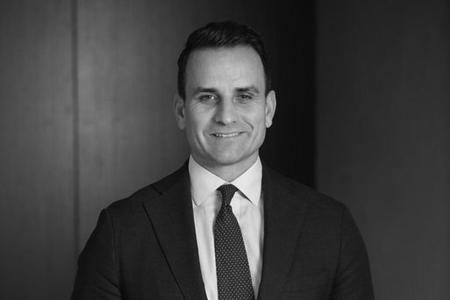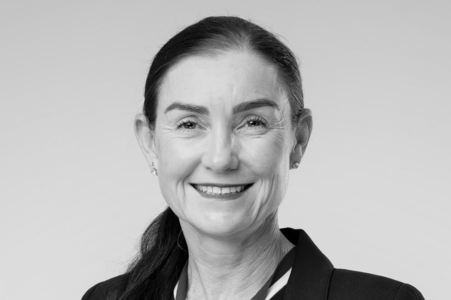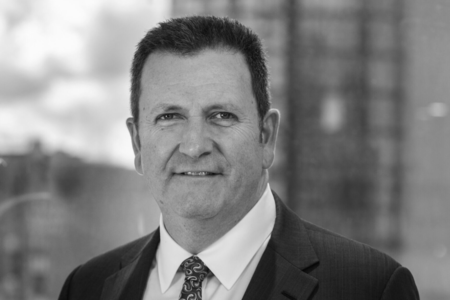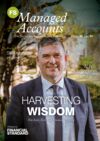Balancing act To be successful as Australian Financial Complaints Authority's (AFCA) lead ombudsman for investments and advice, one requires empathy, impartiality, and rationality. Shail Singh shares how he also uses legal and financial advice expertise to help consumers, small businesses, and member firms. Karren Vergara writes. Shail Singh comes from a long line of family members whose purpose is to help and serve other people. His father, Bruce Singh, is a psychiatrist, professor, author, and researcher who was cato chair of the University of Melbourne's department of psychiatry. He was also awarded an Order of Australia in 2007. "I look up to him as an example and admire what he's achieved. It was a different society when his career was progressing back in the 60s and 70s. Australia has changed a lot since then. He managed to move up in what were at the time very conservative ranks in academia at Melbourne Uni," he says. While he did consider joining the medical field to become a doctor like his father, law ultimately prevailed. Perhaps it was Singh's maternal side of the family that attracted him to go into law as his mum and grandfather were lawyers. His mum's uncle was also on the Supreme Court of Fiji. Upon completing a science and law degree after high school, Singh managed, after a bit of a struggle, to secure a role at a top-tier law firm. "It didn't take me very long to realise that a corporate law firm was not the place for me, but I certainly learned a lot from the experience," he says. "I was still in my mid-20s and wanted to try other things." Singh moved to the public sector next, which he describes as "much more satisfying", taking on a role as a solicitor at Worksafe's Medical Practitioners Board. "I found that helping people rather than helping big corporations was much more in line with my values," he says. But he still wasn't convinced that he found his place in the workforce. While Singh needed some guidance on how best to direct his skills and interests professionally, he was certain about one thing - the motivation to help others. One day, someone suggested he try career counselling - which he says was the "best advice I could receive." "That was a very interesting experience and I recommend it for anyone," Singh says. Following the consultation, a few career options came to the fore: financial adviser, financial counsellor, and even a politician. So, he "burnt his legal textbooks" and went off to become a financial adviser. "I chose financial planning because of the motivation of wanting to help people, and my interest in finance, both of which came out as themes for me in the counselling. And it's probably the reason I enjoyed moving from corporate work to more government work in the public good," he notes. Singh began working as a financial adviser at a small practice called ARA Consultants in Melbourne's inner eastern suburbs as the Global Financial Crisis hit. "I did that for about three years. It was becoming clear to me that the financial planning experience could be utilised as well to help people and it was a great experience. I also got exposure to what it was like to work in and manage a small business. At that point, I also had 10 years' worth of legal experience," he says. "I was thinking was there a way to combine everything together? As it was a shame not to be using my diverse legal experience gained in the private and public sector." Singh found it a bit hard to go from financial advice back to law and ended up in community law, which helps some of the most vulnerable in society. With a young family and other commitments at the time, Singh says the job just wasn't sustainable for him in the long run. Then in 2010, a case management role came up with the Financial Ombudsman Service (FOS). "I thought it was a great opportunity to use my legal and financial advice experience for the benefit of the community," Singh says. On 1 July 2018, the Credit and Investments Ombudsman, FOS, and the Superannuation Complaints Tribunal merged to become AFCA, an industry-funded complaints resolution body for financial, insurance, and superannuation disputes. In the newly formed organisation, Singh rose the ranks from ombudsman for investments and advice, to taking on the acting lead and senior ombudsman roles. In 2022, he was promoted to ombudsman for investments and advice. "Our shared vision for AFCA is to be a world-class ombudsman that delivers an outstanding service to consumers, small businesses, and financial firm members. We want to be fair to everyone and to ensure people feel heard, valued, and supported at what can be a really stressful time," Singh says. "We also try to deliver things efficiently and effectively because the process of compliance has a major impact on consumers and financial firms." A large part of his role is to help financial services firms prevent complaints arising and manage them quickly through their own internal complaints processes. "But if firms do get into a dispute, we show them how to deal with it internally first and not be scared of AFCA if the dispute comes to us," he adds. AFCA now employs about 1200, boasting a gender-balance ratio of 50%. It was named in the Australian Financial Review as one of the best places to work, topping the category for government education, non-profits, and utilities. Last year, AFCA received a record-breaking 102,790 complaints, helping secure $304 million in total compensation, which was up 38% on the prior year. "The most meaningful aspect of my role is playing a part in helping create a better financial planning industry for the benefit of the community. A strong external dispute resolution (EDR) framework results in Australians having confidence in advice. I think it's so important we all keep working on that as the services that advisers provide is invaluable and accessibility to financial advice is so important," he says. To be successful in his role, being able to mediate, see both sides of a dispute, and think on your feet are a must. His financial planning and legal experiences have proven invaluable for Singh as he knows firsthand what types of problems can occur. His background in law - understanding legal principles, conciliation, and mediation skills - are helpful too. "Most importantly you need to be able to connect with the people we serve at their level," he says. The inaugural Compensation Scheme of Last Resort (CSLR) launched in April to provide recourse to consumers to recover some of the funds resulting from an unpaid AFCA determination. "I've seen the heartbreak of people when they don't get a determination paid. It's brutal. A $150,000 determination is life changing for them. I've seen that side of it but I also acknowledge the firms' concerns about the fees and charges and levies," he says. "That's really a matter for government as we don't have a say over how it's funded. But in general, the principle of having a CSLR is a good one and it ultimately is for the benefit of the industry and gives people more confidence in the industry." fs
 Mission possibleTaking a gamble to steady the ship as chief executive of First Nations Foundation, Phil Usher has turned it into a more secure, self sustaining entity ...  Building an empireA single decision can change your life, and that's exactly what Centuria Capital joint chief executive Jason Huljich learned when he came to Australia ...  Game faceHelping investors traverse financial markets and build their wealth during the peaks and troughs is Janus Henderson Investors head of Australia Matt Gaden's ...  In pursuit of passionIt was during a family sojourn to the seaside town of Pescara, Italy, Rob DeDominicis first laid eyes on what would become the harbinger of his future.  Finding the opportunityAn early proponent of global equities investing, Bell Asset Management chief investment officer Ned Bell first made his dream a reality in the US. Now ...  Teacher at heartAs the technical experts and educators for self-managed super funds (SMSFs) for professionals, Heffron Solutions also boasts a large client base of members ...  Bigger and brighter thingsBrighter Super head of listed equities and ESG Fiona Mann was shaped by a childhood steeped in military-like discipline and global nomadism. Andrew McKean ...  Translating outcomesTo Brian Parker, the best investment ideas are the ones that make common sense. As chief economist of Australian Retirement Trust, Parker combines his ...  Driving momentumBuilt from academic rigour and international experience, Angela Jackson's expertise makes meaningful impact in the private and public sector, as well ...  Measured in motionUniSuper chief member and advice officer Danielle Mair's professional tapestry has been marked by a steadfast commitment to leadership, a relentless focus ... |
Editor's Choice
HESTA returns 9.1% to members
|Advent International lands in Australia, names MD
|Channel Capital, Arnott Capital set up strategic partnership
|RBA minutes confirm potential August rate hike
|Products
Expert Feed
Industry Events
Featured Profile

Shail Singh
AUSTRALIAN FINANCIAL COMPLAINTS AUTHORITY























